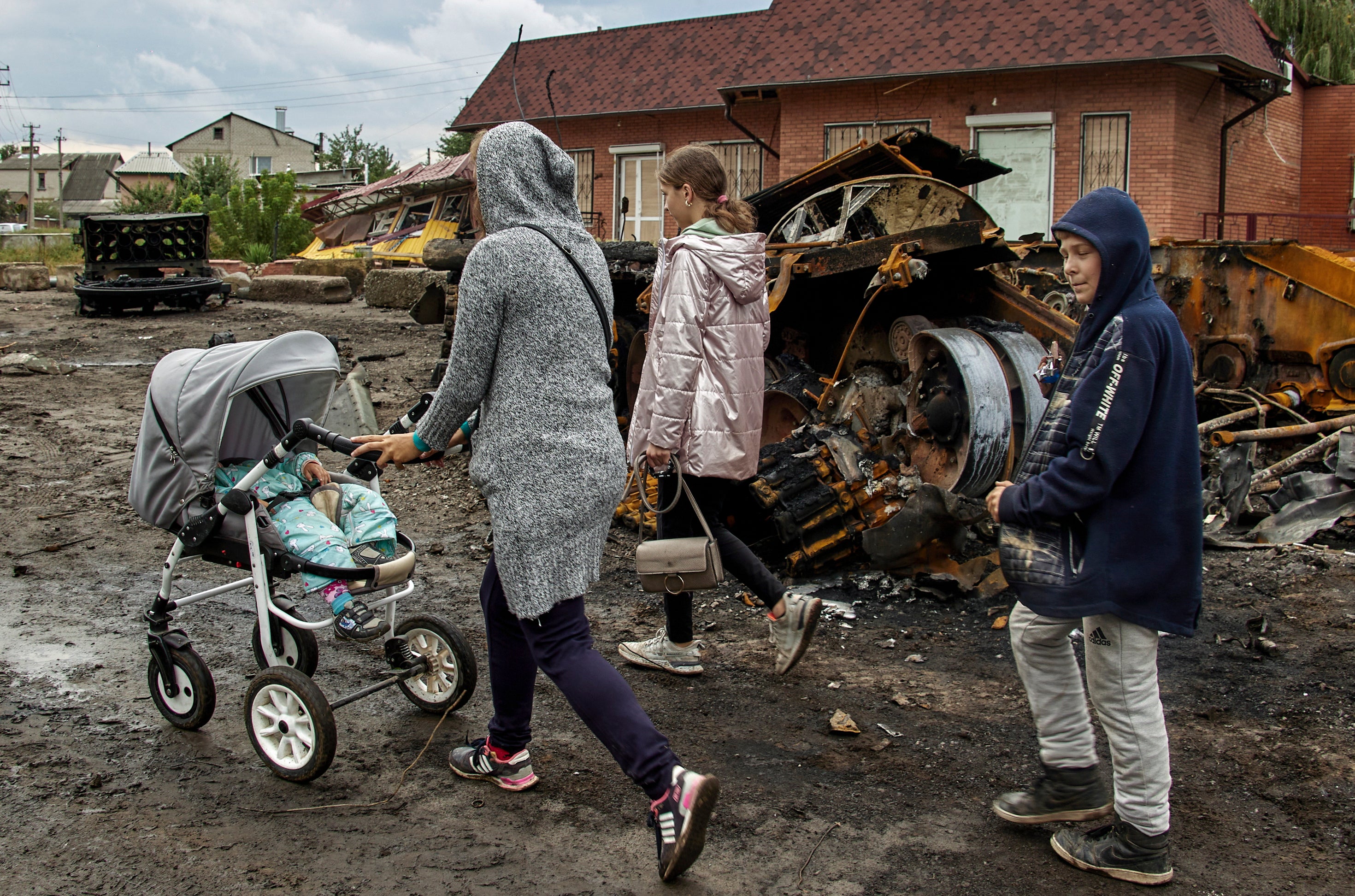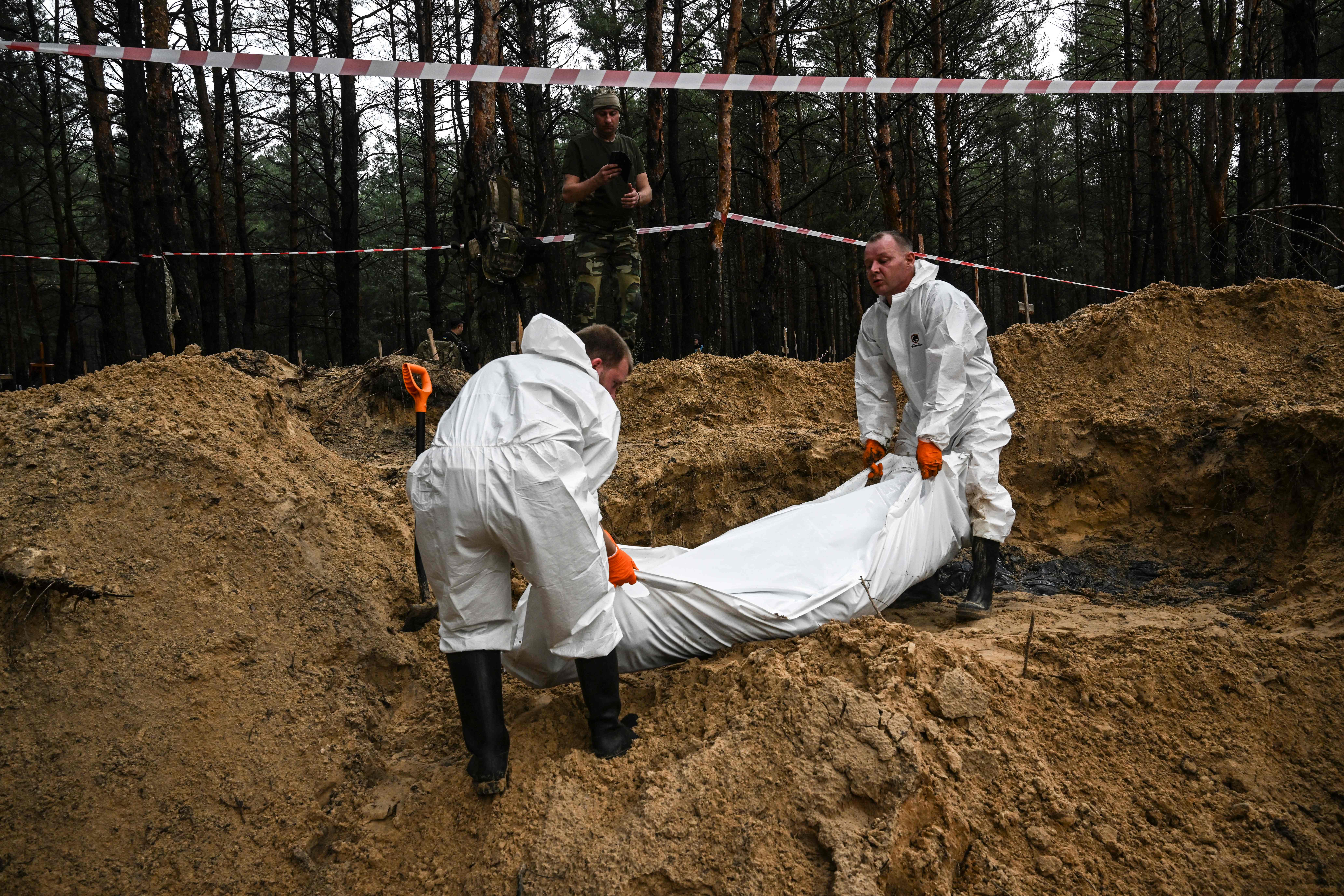Izyum mass grave: Other bodies were ‘put in sacks and thrown onto trucks’ say residents
Some locals were ‘taken to Russia’ during occupation, others are dead or missing
The crosses are in neat rows, placed with almost military precision in a silent forest of falling autumn leaves. The tranquil scene hides what lies beneath: bodies, in their hundreds, of the dead of Izyum.
The mass grave was found by Ukrainian forces who recaptured the town; around 440 corpses, of more than a thousand estimated to have been killed during the Russian occupation.
Volodymyr Zelensky described what had happened here as another symbol of the savage violence in this conflict. “We want the world to know what the Russian occupation has caused – Bucha, Mariupol... now, unfortunately, Izyum,” said the Ukrainian president.
Some of those buried in the forest appear to have been killed by bombs and artillery strikes in the fierce fighting for the town, which became the main Russian stronghold in the area. But there are dozens of others still missing after being arrested by the Russians, as reports have emerged of summary executions. Searches are taking place for other burial sites.
The crosses were placed by Ukrainian officials to mark the graves. The bodies will be removed to Kharkiv. The head of President Zelensky’s office, Andriy Yarmuk, said more information would be provided after forensic tests had been carried out.
Serhiy Bolvinov, Kharkiv’s chief investigator, said: “We know that some were killed, some died because of artillery fire, so-called mine explosion traumas. Some died because of airstrikes. Also we have information that a lot of bodies have not been identified yet; the reasons of death will be established during the investigations.”
Anton Shvets speaks of neighbours who were killed in a missile strike as the fighting intensified. “There was a family of five people living in the house, three of them were children,” he says. “The mother and a girl were killed. It was a big rocket – you can see it left nothing much of the house. There were many others killed as well; it was all really terrible.”

Around 50 residents were killed in an airstrike on a five-storey block of flats in May. The skeleton of the building still stands, but the internal structure has been blown away.
“I don’t think they found all the bodies from then,” says Lyudmilla Doroshenka. “There will be some people buried from that. Others were taken away to be buried... they were put in sacks and thrown onto trucks.
“Quite a few people died from their injuries from bombings. The hospitals had run out of medicine, there were no supplies coming in. A lot of these people would have lived if they could get treatment.”

There are still more who have disappeared, says Ms Doroshenka. “We know of some who have been taken to Russia. They were arrested and accused of all kinds of things. Some, we hear, were killed here. They were not soldiers, just people who worked for the local authority and others.”
Among the burnt and wrecked buildings lie Russian tanks destroyed by Ukrainian fire. Other armoured cars and trucks, relatively undamaged, lie abandoned by retreating forces.
“They oppressed us for months. It’s difficult to believe how quickly they fled,” says Artem, one of a group of local residents talking to Ukrainian soldiers. “We know they have gone, but there’s always a fear they’ll try to come back.”
Join our commenting forum
Join thought-provoking conversations, follow other Independent readers and see their replies
Comments

Bookmark popover
Removed from bookmarks